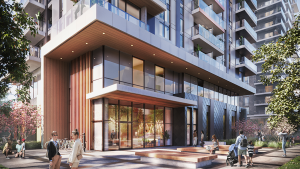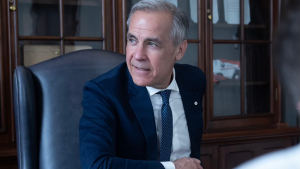Webinar panellists asked for their reading of the real estate sector across the country during a recent session billed as a pan-Canadian “pulse check” suggested the prospects of recovery in the industry are fraught with uncertainty.
The May 25 Urban Land Institute webinar began with analysis of first-quarter real estate market statistics as well as second-half 2020 market forecasts by Altus Group executive researcher Raymond Wong and his colleague Patricia Arsenault, an executive vice-president in research consulting with the firm.
Wong reported that a survey of clients showed over 50 per cent of respondents said all real estate investment transactions were currently on hold. Broken down into sectors, 50 per cent of office deals were on ice and 58 per cent of retail transaction were on hold, as were 51 per cent of industrial transactions and 53 per cent of residential.
Arsenault addressed the supply side of housing, noting COVID-related uncertainties influencing investors and builders included future low immigration and flat employment numbers.
“Most but not all new project launches planned for spring were pushed off,” Arsenault said. “Most of the delayed projects could be brought to market fairly quickly but that is only if there if was evidence of sustained pick-up in demand.
“As well, I suspect there will be many project postponements for a longer time period as proponents re-evaluate their projects’ viability.”
On the housing demand side, there was bad news and better news, Arsenault said.
The poor economy won’t necessarily mean housing demand will switch from ownership to rentals, she explained.
“Rather, household formation rates tend to go down, younger people will stay at home longer, they will move back in with parents, singles double up, couples delay splitting up, all those factors…will impact housing demand levels,” Arsenault explained.
But the burden of unemployment has not been borne equally, she said, with layoffs hitting people on the lower end of the socio-economic spectrum more than the more wealthy.
“Many of those could choose to buy right now,” she said. “Or they could still choose to wait and see what’s going on in the short term.”
But eventually, Arsenault said, that group represents potential future pent-up demand.
The presentations by Wong and Arsenault were followed by a panel discussion of real estate and construction prospects across the country featuring development experts from Ontario, Alberta and British Columbia.
Jeff Thompson, Alberta-based vice-president with Ledcor, a constructor active in many sectors, noted there was a lot of “tire kicking” going on in the housing sector.
“Everybody still has lots of projects that they want to proceed with,” he said. “They don’t know when exactly. They have to figure out what the metrics need to look like.”
But still, across the country, the pipeline of potential projects is full, though there is regional disparity, he said. He said the dip in productivity felt during the pandemic might continue for a couple more months but then production could return.
Brian McCauley, Vancouver-based president and CEO of Concert Properties, which has a busy portfolio in the residential, commercial and industrial sectors, said construction productivity in his province was returning to normal after cratering in the first weeks after the start of the crisis in March, with 85 to 90 per cent of the construction workforce now back on the job, but costs raised potential alarms.
“We don’t know how trade contractors will price this uncertainty or these hiccups that are related to COVID’s new safety precautions,” said McCauley. “That is not only causing some delays on the production side, but it is also a point of uncertainty moving forward.”
He said he doubts the Canada Mortgage and Housing Corporation’s warning that housing prices could drop by up to 18 per cent in the next year. He said given supply constraint and continued demand, it is likely prices will remain high, especially in Vancouver and Toronto.
Key factors to rebuilding homebuyer confidence, McCauley said, are jobs returning in a stable economy, resumption of immigration and low interest rates.
Meanwhile, McCauley said there could be a “seismic shift” in the public-oriented retail market, including restaurants and bars. It was a point introduced by panel moderator Duncan Wlodarczak, Vancouver-based chief of staff with the Onni Group, who said he heard from one U.S. commentator recently that 80 per cent of restaurants might go under.
“Some of them might not survive going forward but we are doing everything we can to keep them active and engaged,” McCauley said.
Panellist Lesley Leech, a Toronto-based director with office and retail developer Cadillac Fairview, acknowledged the retail market was hit hard. She said her firm is working constantly to help tenants survive their months-long shutdowns. Leech was asked if the developer was working on a strategy to repurpose some of its retail portfolio.
“Our investment team and development team is strategizing on all our current plans out there and we will wait to see what the trends are,” she said, adding Cadillac Fairview would wait to obtain more information before making such “major decisions.”
Follow the author on Twitter @DonWall_DCN.











Recent Comments
comments for this post are closed